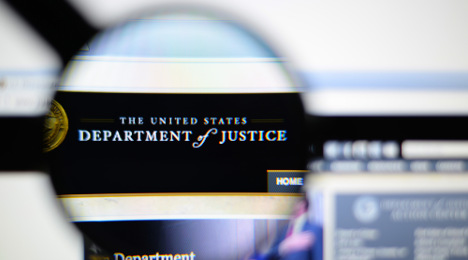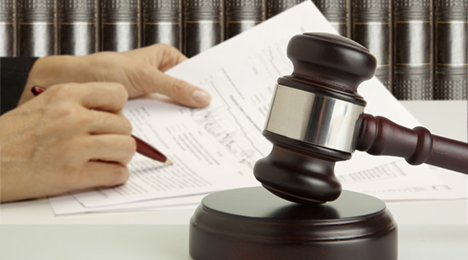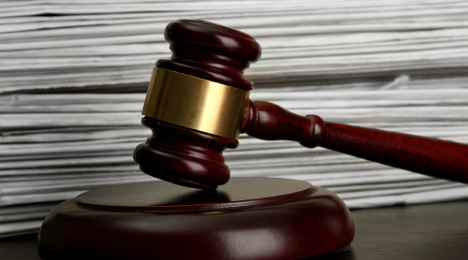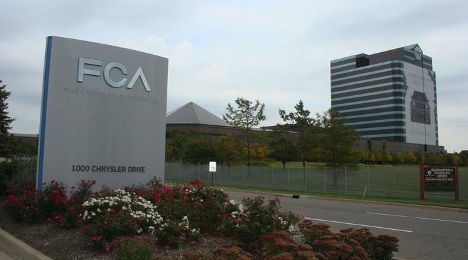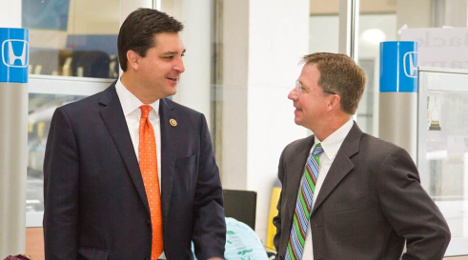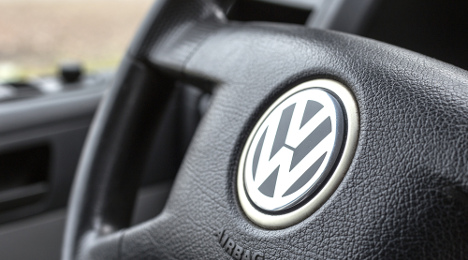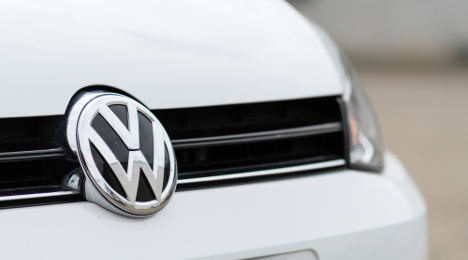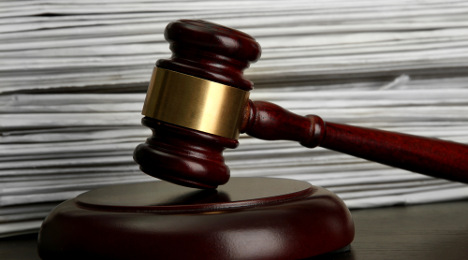The Justice Department filed a lawsuit this week in the Eastern District of Michigan to recover damages from the COPOCO Community Credit Union, alleging that the institution violated the Servicemembers Civil Relief Act (SCRA) by repossessing protected servicemembers’ vehicles without obtaining the necessary court orders.
The SCRA protects the rights of servicemembers on active duty by suspending or modifying certain civil obligations. The law prohibits repossessing a vehicle from a servicemember during military service without a court order if the individual made a deposit or installment payment on the loan before entering military service.
The Justice Department’s complaint alleges that COPOCO’s vehicle repossession procedures did not include any process to determine customers’ military status — such as checking the Department of Defense’s database — prior to conducting repossessions without court orders.
The complaint also alleges that COPOCO illegally repossessed U.S. Army Private First Class Christian Carriveau’s vehicle, along with his 2-year-old daughter’s car seat, from his driveway in Lacey, Wash., near Joint Base Lewis-McChord. His wife, Alyssa Carriveau, initially believed that the vehicle had been stolen, but she subsequently learned that it had been repossessed.
Private First Class Carriveau was away at military training at the time and Alyssa Carriveau was not able to get to work without the vehicle.
In addition to monetary damages for affected servicemembers, the SCRA provides for civil monetary penalties of up to $60,000 for the first offense and $120,000 for each subsequent offense. The department will also seek changes in how COPOCO conducts future repossessions.
COPOCO Community Credit Union is based in Bay City, Mich.
“No servicemember should be penalized for honorably serving our country,” said principal deputy associate attorney general Bill Baer. “COPOCO Community Credit Union’s alleged misconduct in repossessing vehicles without the required court order is both wrong and illegal.
“The Justice Department continues to ensure that we are doing all we can to protect and assist servicemembers, veterans and their families from unlawful conduct by creditors,” Baer continued.
The SCRA protects servicemembers against certain civil proceedings that could affect their legal rights while they are in military service. It requires a court to review and approve any repossession if the servicemember took out the loan and made a payment before entering military service.
The court may delay the repossession or require the finance company to refund prior payments before repossessing. The court may also appoint an attorney to represent the servicemember, require the finance company to post a bond with the court and issue any other orders it deems necessary to protect the servicemember.
By failing to obtain court orders before repossessing vehicles owned by protected servicemembers, DOJ officials indicated COPOCO prevented court review of whether such repossessions should be delayed or adjusted in light of military service.
“The Justice Department works tirelessly to protect the rights of those who answer our nation’s call to duty to defend our freedom,” said principal deputy assistant attorney general Vanita Gupta, head of the Justice Department’s Civil Rights Division.
“We will continue to vigorously pursue lenders who fail to take the simple steps necessary to determine, before repossessing a car, whether it belongs to a servicemember,” Gupta continued.
U.S. attorney Barbara McQuade of the Eastern District of Michigan added, “This law was designed to ease the legal and financial burdens for servicemembers and their families when facing the demands of active duty.
“We owe it to all servicemembers to vigorously enforce these laws to protect them while they are serving their country,” McQuade went on to say.
The settlement plan involving Volkswagen and Audi 2.0L TDI vehicles in the United States cleared another hurdle on Wednesday when Judge Charles Breyer of the U.S. District Court for the Northern District of California granted preliminary approval of the agreement reached on June 28 with private plaintiffs represented by the Plaintiffs’ Steering Committee (PSC) to resolve civil claims associated with “Dieselgate.”
The automaker indicated individual class members will now receive notification of their rights and options under the agreement. Volkswagen will begin the settlement program immediately after the court grants final approval to the class settlement, which is anticipated on Oct. 18.
Under the proposed settlement, eligible customers will have two choices:
1. They can sell back their vehicle to Volkswagen or terminate their lease without an early termination penalty.
2. Keep their vehicle and receive a free emissions modification, if approved by the U.S. Environmental Protection Agency (EPA) and the California Air Resources Board (CARB).
Customers who select any of these options under the settlement will also receive a cash payment from Volkswagen.
“Volkswagen appreciates the constructive engagement of all the parties, under the direction of Judge Breyer and with the active participation of special master Robert Mueller III, as the settlement approval process moves forward,” the OEM said.
“The parties believe that the proposed settlement program will provide a fair, reasonable and adequate resolution for affected Volkswagen and Audi customers,” the company added.
The vehicles associated with this settlement include:
2013- 2015 VW Beetle
2010-2015 VW Golf
2009-2015 VW Jetta
2012-2015 VW Passat
2010-2013; 2015 Audi A3
Breyer articulated a similar stance when issuing the court’s decision this week.
“Just a little over 10 months ago, the public learned of Volkswagen’s allegedly deliberate use of a defeat device — software installed in certain Volkswagen- and Audi-branded turbocharged direct injection (TDI) diesel vehicles that was designed to cheat emissions tests and deceive state and federal regulators — in nearly 500,000 cars sold in the United States,” Breyer wrote. “Consumers filed hundreds of lawsuits which have been assigned to this court as a multidistrict litigation (MDL).
“After five months of intensive negotiations, and with the assistance of a court-appointed settlement master, plaintiffs and defendants Volkswagen AG, Audi AG and Volkswagen Group of America Inc. (collectively Volkswagen) reached a settlement that resolves consumer claims concerning certain 2.0-liter diesel TDI vehicles,” the judge continued.
“The settlement is sufficiently fair, adequate and reasonable to the 2.0-liter diesel engine vehicle consumers to move forward with class notice,” Breyer went on to note.
Breyer added that the court set a deadline of Oct. 4 for class members to file a notice of intent to appear at the final fairness hearing.
More information about the program can be found at www.VWCourtSettlement.com.
Not long after Volkswagen made some progress in satisfying “Dieselgate” issues with federal regulators, the automaker is now facing lawsuits filed by three highly populated states that reportedly have more than 50,000 of these vehicles — New York, Massachusetts and Maryland.
On Tuesday, the attorneys general from those three states announced lawsuits against Volkswagen as well as Audi and Porsche, saying the automakers fitted vehicles with illegal “defeat devices” that concealed illegal amounts of harmful emissions and then allegedly attempted to cover up their behavior. The action came from New York attorney general Eric Schneiderman, Massachusetts attorney general Maura Healey and Maryland attorney general Brian Frosh.
“The allegations against Volkswagen, Audi and Porsche reveal a culture of deeply rooted corporate arrogance, combined with a conscious disregard for the rule of law and the protection of public health and the environment,” Schneiderman said. “These suits should serve as a siren in every corporate board room, that if any company engages in this type of calculated and systematic illegality, we will bring the full force of the law — and seek the stiffest possible sanctions — to protect our citizens.”
These lawsuits by the New York, Massachusetts and Maryland attorneys general offices follow a nine-month-long investigation by a coalition of more than 40 states and other jurisdictions led by New York, Massachusetts and four other states. New York State’s Department of Environmental Conservation, Massachusetts’ Department of Environmental Protection and Maryland’s Department of the Environment provided important assistance with the investigation, according to officials.
The complaints allege, in detail, a cover-up that Volkswagen and Audi allegedly managed for nearly 18 months. The cover-up followed a study by researchers at West Virginia University that alerted federal authorities that these diesel vehicles emitted much more nitrogen oxides (NOx) when driven on the road than they did when undergoing emissions testing on test equipment used by the U.S. Environmental Protection Agency (EPA) and the California Air Resources Board (CARB) to test the amount of air pollutants emitted.
It hasn’t even been a month since Volkswagen agreed to two related settlements — one with the United States and the state of California and one with the Federal Trade Commission.
Federal officials explained that Volkswagen and related entities have agreed to spend up to $14.7 billion to settle allegations of cheating emissions tests and deceiving customers. They indicated VW will offer consumers a buyback and lease termination for nearly 500,000 units with 2.0 liter diesel engines from the 2009 through 2015 model years that were sold or leased in the U.S.
VW reacted to the lawsuits from New York, Massachusetts and Maryland, calling them “regrettable.”
In a message sent to Auto Remarketing, the automaker said, “The allegations in complaints filed by certain states are essentially not new and we have been addressing them in our discussions with U.S. federal and state authorities.
“Volkswagen continues to work cooperatively with the U.S. Department of Justice, the Environmental Protection Agency and the California Air Resources Board on a comprehensive national resolution of all remaining environmental issues arising from the diesel matter,” the company continued.
“To date, Volkswagen has agreed to buy back or modify affected 2.0L TDI vehicles, establish a $2.7 billion environmental remediation trust for the benefit of all 50 states, and invest $2 billion for infrastructure to increase the use of zero emission vehicles across the United States,” the company went on to say.
“It is regrettable that some states have decided to sue for environmental claims now, notwithstanding their prior support of this ongoing federal-state collaborative process,” VW added.
The trio of attorneys general claimed there are more than 25,000 VW diesel units associated with the matter in New York while another 15,000 are in Massachusetts and 12,935 are in Maryland.
“Volkswagen, Audi and Porsche defrauded thousands of Massachusetts consumers, polluted our air, and damaged our environment and then, to make matters worse, plotted a massive cover-up to mislead environmental regulators,” Healey said. “With today’s action, we want to make clear to all auto manufacturers that violating laws designed to protect our environment and our public health is unacceptable and will be punished with significant penalties.”
Frosh added, “Maryland has worked tirelessly, through Maryland’s Healthy Air Act and Clean Cars Act, as well as stringent regulations adopted by the Department of the Environment, to clean our air.
“As our complaint sets out, Volkswagen, Audi and Porsche installed defeat devices in their cars to trick regulators and to deceive the public; they did so knowing that their conduct was illegal and their misconduct has hindered our efforts to clean the air and to clean the Chesapeake Bay,” Frosh went on to say. “Their disregard for the health of our citizens and their disregard for our environment must be punished.”
The lawsuits allege that, after the EPA and CARB contacted Volkswagen and Audi about the discrepancies revealed by the West Virginia University study — which the companies fully knew were caused by their defeat devices — Audi and Volkswagen:
—Tried to cover up the problem through sham recalls that they knew would not meet the required standards
—Repeatedly failed to disclose to regulators the true reason — the defeat devices — for the discrepancies
—Only confessed to the defeat devices when they knew the regulators had them pinned to the facts
The lawsuits allege this cover-up was orchestrated and approved at the highest levels of the company, up to and including the former chief executive officer Martin Winterkorn.
“Throughout this entire course of alleged illegal conduct, in which dozens of employees, officers and senior executives were involved, the investigation found no evidence that a single Volkswagen, Audi or Porsche employee came forward to blow the whistle,” the attorneys general said.
“As alleged in the complaints, Volkswagen’s response to the scandal shows that the company has not reformed its corporate behavior,” they continued.
A copy of the complaint can be found here.
As widely reported on Monday, the Securities and Exchange Commission and the Department of Justice want to know exactly how Fiat Chrysler Automobiles is reporting its new-vehicle sales.
The automaker released a statement confirming reports that first arrived from Automotive News and Bloomberg, reiterating its procedure for how the company shares metrics within its financial statements.
“In response to press reports (Monday), FCA confirms that it is cooperating with an SEC investigation into the reporting of vehicle unit sales to end customers in the U.S.,” the automaker said in a statement obtained by Auto Remarketing. “In its annual and quarterly financial statements, FCA records revenues based on shipments to dealers and customers and not on reported vehicle unit sales to end customers.
“Inquiries into similar issues were recently made by the U.S. Department of Justice,” the company continued. “FCA will cooperate fully with these investigations.”
And those investigations certainly are what’s intriguing to Kelley Blue Book analyst Akshay Anand.
“Much of the FCA investigation is in wait-and-see mode right now as details are still coming to light,” Anand said in a message to Auto Remarketing. “If FCA did engage in illegal practices, it’s likely we will see stiff fines and possibly more.
“If the investigation uncovers nothing incriminating, it will be business as usual, especially for the stars of the FCA group — Jeep and Ram,” Anand added.
According to a news release posted on its investor relations site, FCA highlighted June U.S. new-model sales of 197,073 units, a 7-percent increase compared with sales in June of last year that totaled 185,035 units. Officials added the month marked the group’s best June sales in 11 years.
The OEM went on to mention the Jeep, Dodge and Ram Truck brands each posted year-over-year sales gains in June compared with the same month a year ago. The Jeep brand’s 17 percent increase was the brand’s best June sales ever, while Ram achieved its best June sales in a decade.
When the sales figures arrived on July 1, Autotrader senior analyst Michelle Krebs said, “It’s the same old story at Fiat Chrysler. Jeep and Ram with trucks, vans and utilities carry the load for the company. Despite big incentives, Fiat cars still won’t budge as they have the highest inventories in the industry.”
Kelley Blue Book senior analyst Rebecca Lindland cheered the automaker’s performance because her team generated its own metrics.
“This is great to see, especially since Fiat Chrysler’s average transaction prices grew by nearly 4 percent year-over-year, according to our own sources,” Lindland said. “Jeep is carrying the company, outselling Dodge and Chrysler combined both in the month and year-to-date. The Pacifica is supporting Chrysler as it sells off the 200 sedan, and the Caravan and Durango are carrying the Dodge brand as car sales struggle.
“The power of the Jeep label is personified in sales of the Renegade, where monthly sales are outpacing its sister Fiat 500X’s year-to-date sales,” she went on to say.
Now that turning of new metal is being questioned by federal officials, and it’s not the first time this year the OEM has had to tackle the issue.
Back in January, the automaker acknowledged the filing of a lawsuit in an Illinois Federal Court by two U.S. dealers located in Illinois and Florida. The dealer plaintiffs were two stores of the Ed Napleton Automotive Group.
“The lawsuit makes allegations of false sales reporting by FCA US. Notwithstanding numerous requests to provide evidence of this alleged activity, the plaintiffs have refused to substantiate their claims,” OEM officials said at the time. “FCA US carried out an investigation of the facts, and has determined that these allegations are baseless and plaintiffs were notified of this fact before they filed suit.”
The automaker elaborated about the activity by this franchised dealer group.
“This lawsuit is nothing more than the product of two disgruntled dealers who have failed to perform their obligations under the dealer agreements they signed with FCA US,” OEM officials continued. “They have consistently failed to perform since at least 2012, and have also used the threats of litigation over the last several months in a wrongful attempt to compel FCA US to reserve special treatment for them, including the allocation of additional open points in the US FCA network.
“FCA US will continue to resist these pressures, safeguarding the relationship of trust and openness which governs its relationship with its dealers,” the company went on to say. “FCA finds it unfortunate and disappointing that reputable media would be willing to be used in questionable litigation practices without a full understanding of the facts.”
Like their contemporaries at the National Automobile Dealers Association, leaders from the American International Automobile Dealers Association are urging dealer principals to reach out to members of Congress as they adjourn for their summer recess.
AIADA insisted the best way to forge a meaningful relationship with elected officials is through its Dealer Visit Program.
“We rely on the involvement of our dealers to make an impact on legislators and policymakers,” AIADA said. “There is no better time to host your member of Congress at your dealership.”
The AIADA Dealer Visit Program can allow members of Congress to see first-hand the challenges and rewards of running a successful dealership.
The experience generally consists of a one-hour visit where the lawmaker will come to the dealership, conduct a mini town hall forum with managers and store employees, and tour the facility. By opening the dialogue between dealers and lawmakers, AIADA emphasized both parties can learn about each other’s businesses.
“It is an opportunity to jump start a vital one-on-one relationship between dealers and elected officials and provides the members with a look into how the decisions made in Washington affect the daily lives of dealers and their employees,” the association said.
Last summer, Stevenson Honda in Wilmington, N.C., hosted Rep. David Rouzer, a North Carolina Republican.
“The opportunity was invaluable,” Stevenson Honda general manager Patrick Koballa said about the event that included “a thoughtful discussion about automotive industry issues.”
Koballa added, “Congressman Rouzer got a chance to see the day-to-day operations of our business and how his decisions in Washington impact our community, and Stevenson Honda employees got a chance to talk one-on-one with a key decision-maker in Washington.”
AIADA said the best part of the Dealer Visit Program is the association said it will handle all the details — from scheduling and talking points to media advisories and event logistics.
AIADA acknowledged that August schedules are quickly filling up and now is the time to start planning for your visit. Dealers can contact Sarah Martinez, manager of grassroots and government relations, at [email protected] or (703) 519-7800 to schedule a dealership visit.
As an industry compliance expert tried to explain how complicated it might be to unwind installment contracts and leases, NADA Used Car Guide confirmed that its values are being used to generate the figures associated with the Volkswagen diesel emissions settlement announced on Tuesday. The data denotes how much the OEM will pay owners to buy back vehicles or the additional cash payment beyond the automaker subsidizing the cost of regulator-approved modifications.
Depending on what the vehicle owner decides to do, that payment can range from $5,100 to someone who keeps and has repairs done on a 2009 VW Jetta Sedan TDI or Jetta SportsWagen TDI to $44,176 to an individual who elects for the OEM to buy back a 2015 Audi A3 TDI Prestige. Regulators explained the estimates are based on these vehicles’ retail value as of September 2015 — just prior to the public disclosure of the emissions issue.
For vehicle lessees, the settlement payment can range from $2,634 for someone leasing a 2011 VW Jetta Sedan TDI to $4,899 for the lease holder of a 2015 Audi A3 TDI Prestige, according to a document NADA Used Car Guide sent to Auto Remarketing on Tuesday afternoon.
The complete payment rundown for vehicle owners and lessees involved in this matter can be viewed here.
No matter what the consumer chooses, Environmental Protection Agency administrator Gina McCarthy shared a message that ought to resonate with used-car managers in the dealership world as well as auction managers in the wholesale space.
“Volkswagen is required with the cars they bring back to actually fix them according to a fix that EPA would approve to scrap them. There’s also in here the encouragement for the recycling of the scrap that can be reused,” McCarthy said when she and representatives from the Federal Trade Commission and the Justice Department announced the settlement with VW on Tuesday morning.
“These are not going to be shipped elsewhere in their current form. This is about taking care of the air pollution that was emitted here in the U.S., but we’re not shipping that air pollution elsewhere,” McCarthy continued.
While the settlement arrived Tuesday as mandated by a U.S. District Court judge, VW had yet to finalize a way to repair nearly 500,000 units with 2.0 liter diesel engines from the 2009 through 2015 model years. According to the settlement, the OEM has until the end of the year to craft the repair.
“We are hopeful that within a six-month window we will have a determination that a fix is possible,” McCarthy said. “If one comes along at any point in time … but really consumers have until May of 2018 to make choices. This is a very big task that Volkswagen is taking on. Individuals will be able to make a decision early on if they want, right after the settlement is effective. But we will also have opportunities for them to think about it and to see if they want the fix instead.
“This is all about consumer choice and making sure they have the time and making sure Volkswagen is meeting their responsibilities to provide the opportunity for a buyback, a lease termination or to get a fix in place that EPA has set a standard for that will be very rigorous. We’re working through those issues now,” she went on to say.
If the vehicle owner doesn’t choose to have it repaired, the challenge turns to VW Credit or the finance company that holds the installment contract or lease to be involved in settling the matters. Auto Remarketing reached out to compliance expert Randy Henrick, who indicated that how the financing-related process is going to unfold remains unclear.
“If you unwind the contracts — as opposed to giving the consumers a cash payment for the reduced value of the vehicle — presumably the customer will have to surrender the vehicle,” said Henrick, who was Dealertrack’s regulatory and compliance counsel for 12 years and now conducts industry consulting at www.autodealercompliance.net.
“The credit reporting would have to indicate an early payoff; nothing adverse to the consumer,” he continued.
“I think the hard part is going to be dealing with all those vehicles and vehicle owners,” Henrick went on to say. “Not sure how lessees and people who sold or traded in their vehicles before (or after) September 2015 are going to be affected. The government will not want these vehicles on the road, so this is just the beginning with a lot of uncertainties.
“I think despite VW’s efforts, it is only the tip of the iceberg,” Henrick added.
That iceberg also includes more significant challenges for Volkswagen to clear. Federal officials added the settlements announced on Tuesday do not resolve pending claims for civil penalties or any claims concerning 3.0 liter diesel vehicles, nor do they address any potential criminal liability.
“I can assure you that our criminal investigation remains active and ongoing. We will follow the facts wherever they go and we will determine whether to bring criminal charges against any companies or individual wrongdoers,” Deputy Attorney General Sally Yates said.
The complete session featuring DOJ, EPA and FTC officials can be viewed in the window at the top of this page or by going here.
Described as a “painful pill to swallow,” Volkswagen is going to have to spend nearly $15 billion to settle with federal regulators and consumers involving vehicles associated with a diesel emissions controversy.
In two related settlements — one with the United States and the state of California and one with the Federal Trade Commission — federal officials said on Tuesday that Volkswagen and related entities have agreed to spend up to $14.7 billion to settle allegations of cheating emissions tests and deceiving customers. They indicated VW will offer consumers a buyback and lease termination for nearly 500,000 units with 2.0 liter diesel engines from the 2009 through 2015 model years that were sold or leased in the U.S.
The automaker agreed to spend up to $10.03 billion to compensate consumers under the program.
In addition, federal officials stated the OEM will spend $4.7 billion to mitigate the pollution from these vehicles and invest in green vehicle technology.
Officials explained the settlements “partially resolve” allegations by the Environmental Protection Agency (EPA), as well as the California attorney general’s office and the California Air Resources Board (CARB) under the Clean Air Act, California Health and Safety Code and California’s Unfair Competition Laws, relating to the vehicles’ use of “defeat devices” to cheat emissions tests.
The settlements also resolve claims by the FTC that Volkswagen violated the FTC Act through the deceptive and unfair advertising and sale of its “clean diesel” vehicles.
Officials added the settlements do not resolve pending claims for civil penalties or any claims concerning 3.0 liter diesel vehicles, nor do they address any potential criminal liability.
The affected vehicles include 2009 through 2015 Volkswagen TDI diesel models of Jettas, Passats, Golfs and Beetles as well as the TDI Audi A3.
2 options to satisfy current owners
The settlements require Volkswagen to offer owners of any affected vehicle the option to have the company buy back the vehicle and to offer lessees a lease cancellation at no cost. Volkswagen may also propose an emissions modification plan to the EPA and CARB, and if approved, may also offer owners and lessees the option of having their vehicles modified to substantially reduce emissions in lieu of a buyback.
Regulators noted that Volkswagen must set aside and could spend up to $10.03 billion to pay consumers in connection with the buy back, lease termination, and emissions modification compensation program. They explained the program has different potential options and provisions for affected Volkswagen diesel owners depending on their circumstances:
—Buyback option: Volkswagen must offer to buy back any affected 2.0 liter vehicle at retail value as of September 2015 — just prior to the public disclosure of the emissions issue. Consumers who choose the buyback option will receive between $12,500 and $44,000, depending on their unit’s model, year, mileage and trim of the vehicle, as well as the region of the country where it was purchased.
In addition, because officials computed a straight buyback will not fully compensate consumers who owe more than their vehicle is worth due to rapid depreciation, the FTC order provides these consumers with an option to have their loans forgiven by Volkswagen.
Consumers who have third party loans have the option of having Volkswagen pay off those loans, up to 130 percent of the amount a consumer would be entitled to under the buyback (such as if the consumer is entitled to a $20,000 buyback, VW would pay off his/her loans up to a cap of $26,000), according to the settlement.
—EPA-approved modification to vehicle emissions system: The settlements also allow Volkswagen to apply to EPA and CARB for approval of an emissions modification on the affected vehicles, and, if approved, to offer consumers the option of keeping their cars and having them modified to comply with emissions standards.
Under this option in accordance with the FTC order, consumers would also receive money from Volkswagen to redress the harm caused by VW’s deceptive advertising.
Regulators went on to mention consumers who leased the affected vehicles will have the option of terminating their leases (with no termination fee) or having their vehicles modified if a modification becomes available.
In either case, under the FTC order, officials insisted these consumers also will receive additional compensation from Volkswagen for the harm caused by VW’s deceptive advertising.
Consumers who sold their TDI vehicles after the VW defeat device issue became public may be eligible for partial compensation, which will be split between them and the consumers who purchased the cars from them as set forth in the FTC order.
Officials pointed out that eligible consumers will receive notice from VW after the orders are entered by the court this fall. Consumers will be able to see if they are eligible for compensation and if so, what options are available to them, at VWCourtSettlement.com and AudiCourtSettlement.com. They will also be able to use these websites to make claims, sign up for appointments at their local Volkswagen or Audi dealers and receive updates.
Consumer payments will not be available until the settlements take effect if and when approved by the court, which may be as early as October, according to regulators.
Under the U.S./California settlement, Volkswagen must achieve an overall recall rate of at least 85% of affected 2.0 liter vehicles under these programs or pay additional sums into the mitigation trust fund. The FTC order requires Volkswagen to compensate consumers who elect either of these options.
Automaker’s assessment of settlement
Volkswagen recapped the settlement details in a news release and chief executive officer Matthias Müller touched on how the OEM reached this point.
“We take our commitment to make things right very seriously and believe these agreements are a significant step forward,” Müller said. “We appreciate the constructive engagement of all the parties, and are very grateful to our customers for their continued patience as the settlement approval process moves ahead.
“We know that we still have a great deal of work to do to earn back the trust of the American people. We are focused on resolving the outstanding issues and building a better company that can shape the future of integrated, sustainable mobility for our customers,” he continued.
The automaker noted that the company and regulators believe that the class settlement as presented to the court will provide a fair and reasonable resolution for affected Volkswagen and Audi customers.
Volkswagen added that it continues to work expeditiously to reach an agreed resolution for affected vehicles with 3.0L TDI V-6 diesel engines.
On April 22, Volkswagen reiterated that it recognized total exceptional charges of 16.2 billion Euro in its financial statements for 2015 for worldwide provisions related to technical modifications and repurchases, legal risks and other items as a result of the diesel matter.
As noted at that time, VW maintained that due to the complexities and legal uncertainties associated with resolving the diesel matter, a future assessment of the risks may be different.
“Today’s announcement is within the scope of our provisions and other financial liabilities that we have already disclosed, and we are in a position to manage the consequences,” Volkswagen chief financial officer Frank Witter said.
“It provides further clarity for our U.S. customers and dealers as well as for our shareholders. Settlements of this magnitude are clearly a very significant burden for our business. We will now focus on implementing our TOGETHER-Strategy 2025 and improving operational excellence across the Volkswagen Group,” Witter went on to say.
Immediate auto industry reaction
Observers from Kelley Blue Book, Autotrader and Edmunds.com all used colorful adjectives to describe their reactions to the settlement VW reached with federal regulators and how the automaker is being asked to remedy the situation with current vehicle owners.
“At nearly tenfold the cost of recent payouts by GM and Toyota this one should hold the record for most expensive automotive settlement for quite some time,” Kelley Blue Book senior analyst Karl Brauer said. “While undoubtedly a painful pill for VW’s accountants and stockholders to swallow, it’s also the most comprehensive and customer-friendly resolution I’ve ever seen.
“Not only will VW diesel owners have multiple compensation options, but the company will also fund environmental efforts and advanced clean air technology to offset its excessive diesel emissions,” Brauer continued. “It’s a huge step toward resolving the issue, though many legal hurdles remain, as does finding a resolution for VW’s customers in markets outside the U.S.”
Edmunds.com director of industry analysis Jessica Caldwell also made some medical analogies when sharing her assessment about the settlement.
“Volkswagen has to swallow a $15 billion pill, but it needs to take this medicine in order to move on,” Caldwell said. “This massive financial hit won’t magically make VW’s troubles disappear overnight, and it still has a long road ahead to repair its reputation among car shoppers.
“The company got a head start earlier this month by announcing a long-term commitment to electrification, but it will be a long time before shoppers will trust VW as an environmentally friendly brand,” she continued. “The good news is that history is on Volkswagen's side. Other automakers have successfully weathered their own high-profile scandals and VW has the resources and infrastructure in place to do the same.”
Autotrader senior analyst Michelle Krebs called Volkswagen's proposed settlement “unprecedented in its dollar amount, but the situation was unprecedented, in that it was not a mistake but a deliberate deception.
“The question remains which option will consumers select,” Krebs added.
And fellow Kelley Blue Book senior analyst Rebecca Lindland noted that “It's a huge settlement for any company, especially involving a non-fatal issue. But this has dragged on long enough and the sooner VW puts this behind them, the better.
“They need to concentrate on launching the product-led renaissance that will revitalize the brand and its reputation,” Lindland went on to say.
Environmental requirements & regulator displeasure
According to the civil complaint against Volkswagen filed by the Justice Department on behalf of EPA on Jan. 4, Volkswagen allegedly equipped its 2.0 liter diesel vehicles with illegal software that detects when the vehicle is being tested for compliance with EPA or California emissions standards and turns on full emissions controls only during that testing process.
During normal driving conditions, the software renders certain emission control systems inoperative, greatly increasing emissions. This is known as a “defeat device.” Use of the defeat device results in cars that meet emissions standards in the laboratory, but emit harmful NOx at levels up to 40 times EPA-compliant levels during normal on-road driving conditions.
The Clean Air Act requires manufacturers to certify to EPA that vehicles will meet federal emission standards. Vehicles with defeat devices cannot be certified.
The settlement of the automaker’s Clean Air Act violations also requires Volkswagen to pay $2.7 billion to fund projects across the country that will reduce emissions of NOx where the 2.0 liter vehicles were, are or will be operated. Volkswagen will place the funds into a mitigation trust over three years, which will be administered by an independent trustee.
Officials indicated that beneficiaries, which may include states, Puerto Rico, the District of Columbia and Indian tribes, may obtain funds for designated NOx reduction projects upon application to the Trustee. Funding for the designated projects is expected to fully mitigate the NOx these 2.0 liter vehicles have and will emit in excess of EPA and California standards.
Regulators emphasized the emissions reduction program will help reduce NOx pollution that contributes to the formation of harmful smog and soot, exposure to which is linked to a number of respiratory- and cardiovascular-related health effects as well as premature death. Children, older adults, people who are active outdoors (including outdoor workers), and people with heart or lung disease are particularly at risk for health effects related to smog or soot exposure. NO2 formed by NOx emissions can aggravate respiratory diseases, particularly asthma, and may also contribute to asthma development in children.
Furthermore, the Clean Air Act settlement also requires VW to invest $2 billion toward improving infrastructure, access and education to support and advance zero emission vehicles. The investments will be made over 10 years, with $1.2 billion directed toward a national EPA-approved investment plan and $800 million directed toward a California-specific investment plan that will be approved by CARB.
As part of developing the national plan, officials said Volkswagen will solicit and consider input from interested states, cities, Indian tribes and federal agencies. This investment is intended to address the adverse environmental impacts from consumers’ purchases of the 2.0 liter vehicles, which the governments contend were purchased under the mistaken belief that they were lower emitting vehicles.
Finally, the FTC settlement includes injunctive provisions to protect consumers from deceptive claims in the future. These provisions prohibit Volkswagen from making any misrepresentations that would deceive consumers about the environmental benefits or value of its vehicles or services, and the order specifically bans VW from employing any device that could be used to cheat on emissions tests.
The FTC sued Volkswagen in March, charging that the company deceived consumers with the advertising campaign it used to promote its supposedly “clean diesel” VWs and Audis, which falsely claimed that the cars were low-emission, environmentally friendly, met emissions standards and would maintain a high resale value.
“Today’s announcement shows the high cost of violating our consumer protection and environmental laws,” FTC chairwoman Edith Ramirez said. “Just as importantly, consumers who were cheated by Volkswagen’s deceptive advertising campaign will be able to get full and fair compensation, not only for the lost or diminished value of their car but also for the other harms that VW caused them.”
The provisions of the U.S./California settlement are contained in a proposed consent decree filed on Tuesday in the U.S. District Court for the Northern District of California, as part of the ongoing multi-district litigation, and will be subject to a public comment period of 30 days, which will be announced in the Federal Register in the coming days.
The provisions of the FTC settlement are contained in a proposed Stipulated Final Federal Court Order filed today in the same court.
“By duping the regulators, Volkswagen turned nearly half a million American drivers into unwitting accomplices in an unprecedented assault on our atmosphere,” said Deputy Attorney General Sally Yates. “This partial settlement marks a significant first step towards holding Volkswagen accountable for what was a breach of its legal duties and a breach of the public’s trust.
And while this announcement is an important step forward, let me be clear, it is by no means the last. We will continue to follow the facts wherever they go,” Yates continued.
And EPA Administrator Gina McCarthy added, “Today’s settlement restores clean air protections that Volkswagen so blatantly violated. And it secures billions of dollars in investments to make our air and our auto industry even cleaner for generations of Americans to come.
“This agreement shows that EPA is committed to upholding standards to protect public health, enforce the law, and to find innovative ways to protect clean air,” McCarthy went on to say.
Volkswagen now has an extra week to finalize the “concrete” proposal to federal regulators regarding how to fix or buy back vehicles included in the diesel emissions controversy.
According to a court document that stated “given the highly technical nature of the proposed settlements in these complex proceedings,” U.S. District Judge Charles Breyer obliged the request for VW to submit its plan on June 28; a week later than the initial deadline of Tuesday set during the last legal proceedings on March 24.
Breyer ruled that the date of the next status conference would remain on June 30 with a hearing on preliminary approval to still be on July 26.
“Now, this proposal may include a vehicle buy-back plan or a fix approved by the relevant regulators that allows the cars to remain on the road with certain modifications or both or even other remedies,” Breyer said according to the court transcript posted after the March session.
While Volkswagen is busy trying to remedy the diesel vehicle situation, the OEM also shared aggressive objectives for a fleet of electric models with leadership in Germany planning to roll out more than 30 new e-vehicles by 2025.
VW said it has an annual electric unit sales target of 2 million to 3 million.
“Volkswagen has always enriched the lives of millions of people all over the world with its brands and products. Our aspiration is to continue that success story and play a leading role in shaping auto-mobility for future generations, too. This will require us — following the serious setback as a result of the diesel issue — to learn from mistakes made, rectify shortcomings and establish a corporate culture that is open, value-driven and rooted in integrity,” VW chief executive officer Matthias Müller said during the presentation of the new strategic direction in Wolfsburg, Germany.
After hearing from VW’s boss, analysts from Kelley Blue Book and Autotrader took a bit of a guarded take on Volkswagen’s new strategy that includes those greater investments into electric vehicles, services and more, as the automaker tries to recover from its emissions crisis. Previously, KBB estimated the diesel vehicle quandary could cost VW more than $7 billion.
“A move to electric vehicles might be a profitable venture in Europe, but such a move would have virtually no effect in reversing Volkswagen’s recent trend in North America in the wake of its emissions scandal,” said Jack Nerad, executive editorial director and executive market analyst for Kelley Blue Book.
“In the short- and even medium-term, EVs just won’t give VW the added volume it needs to regain its lost momentum. Further complicating this is the fact that it is nearly impossible to sell EVs at a profit in the United States,” Nerad continued.
Autotrader senior analyst Michelle Krebs touched on the fact that Volkswagen likely won’t be alone in outlining a similar manufacturing and sales strategy.
“Every automaker will need to shift toward more electrification to meet more stringent fuel economy and emission standards by 2025. The problem is consumers are not buying them in great numbers, and some industry forecasts suggest those numbers will grow but still remain low,” Krebs said.
“Volkswagen’s challenge is exacerbated by the ugly diesel situation that has yet to be fully resolved and the distrust that has generated,” she went on to say. “It’s also not at all clear that Volkswagen loyalists will readily shift from buying VW diesels to VW electric cars. Volkswagen has its work cut out in executing its new strategy.”
ACA International, the association of credit and collection professionals, believes that 25 years since the enactment of the Telephone Consumer Protection Act, plaintiff’s attorneys and federal regulators have manipulated the original intent of the law, transforming it from a statute that protects valuable consumer communication with businesses into a tool for frivolous lawsuits.
In its latest white paper titled “The Imperative to Modernize the TCPA: Why an Outdated Law Hurts Consumers and Encourages Abusive Lawsuits,” ACA outlined why the TCPA must be modernized to help consumers and allow legitimate businesses to communicate with these consumers effectively.
“To function as an effective consumer-protection measure, the TCPA must be reformed to more accurately reflect the current state of communication technology in addition to the ways both businesses and consumers use those technologies,” ACA director of research Josh Adams said in the white paper.
According to the latest in ACA’s series of research endeavors, the number of TCPA-related lawsuits skyrocketed 948 percent from 2010 through 2015. Damages in a TCPA lawsuit are set at $500 per unintentional violation and $1,500 per intentional violation.
ACA emphasized these damages add up quickly in class action lawsuits and are part of the reason why TCPA litigation has increased so dramatically in the last five years.
However, the paper noted the outcome of these class action lawsuits generally benefits plaintiff’s attorneys more than the consumers themselves. In 2014, the average attorneys’ fees for a TCPA class action settlement were $2.4 million, while the individual consumer received just $4.12.
ACA mentioned another reason for the proliferation of unnecessary TCPA lawsuits is that the statute has been increasingly applied across a diverse range of industries beyond telemarketing, including necessary informational calls from legitimate debt collection companies to consumers. The paper noted debt collection professionals, as well as legitimate businesses across a wide scope of industries, must be able to send vital, non-solicitous communications to consumers in the way they want to be contacted.
“This problem has been exacerbated by the Federal Communications Commission, the agency responsible for implementing the TCPA, whose broad interpretation of the statute has failed to provide a pathway to compliance for businesses using modern communications,” according to the white paper.
ACA chief executive officer Patrick Morris echoed the points made in the white paper — which can be downloaded here — that extends the series of projects the organization has done recently, including an analysis of the Consumer Financial Protection Bureau’s complaint database as well as clarification about general complaints associated with collections.
“It is no wonder that there are so many businesses that rely on effective communication with their customers coming to together to call for TCPA reform,” Morris said. “This includes credit agencies, universities, retailers, banks and utility companies. They all want relief from abuses of an outdated law.”
To solve these problems with the TCPA, ACA advocates in the white paper that the law must be clarified to allow for the use of modern communication technology to reach consumers in the modern marketplace. Specifically, ACA declared that the FCC must maintain the balance Congress contemplated in enacting the TCPA to protect consumer privacy interests without impeding legitimate business operations.
The laws governing car dealers and the auto industry can be, to put it mildly, complex.
Marc Bonanni, the new associate general counsel at Beepi, would know.
He has been an attorney in the auto industry for 32 years, holding counselor positions at places like Autobytel and Peugeot Motors of America. He has also worked with dealers, both as a partner at Auto Advisory Services and his most recent position, where he ran his own law firm that represented dealers and tech companies.
Bonanni joined the Beepi team officially on April 1, part of a few recent moves the company has made on the legal and tech fronts.
Marjorie Lewis, who joined Beepi’s advisory board, has taken on the role of chief counsel. Additionally, Beepi named Sri Subramaniam its vice president of engineering.
Auto Remarketing caught up with Bonanni to talk about the intricacies of the regulatory world facing a company like Beepi.
‘Work with them’
Given the legal complexities of auto retailing by itself, you can imagine the landscape when you throw online, peer-to-peer and/or direct-to-consumer modeling into the mix.
Particularly when the laws that govern car retailing are, as Bonanni argues, often outdated.
The key, he says, is to work with regulators to adjust to the new ways of retailing, and he is taking that approach in his role with Beepi, which is on the front lines of this new wave of car buying — joined by peers, automakers, dealers and more.
“I know firsthand the laws that are based in the ‘50s and ‘60s are not addressing this new-age buying process. So from an attorney’s standpoint, this is an opportunity to work with the regulators — not work against them, but work with them — to get the definitions more in line with what today’s buying process is,” Bonanni said.
“And that’s, quite frankly, (what has) hamstrung the traditional car dealers for all these years, having these large brick-and-mortar facilities. Because a lot of it has to do with the laws and the way they are on the books. And they have been since before I was born,” he continued.
“From the regulatory standpoint, I think there are tremendous opportunities to advance the understanding of the regulators to change the laws to a degree that it addresses more accurately the online buying process. So for Beepi, what that means is we have to have a foot in both ponds for a while,” Bonanni said.
He said the company has “committed to obtaining vehicle dealer licenses appropriately generated for the state” and has facilities in each of those states, per the license requirements.
In working with regulators, Beepi’s approach is to ask regulators for guidelines beforehand. Bonanni said it has worked well so far.
“We’re not adversarial with any of the states at this point,” he said. “We don’t need to be.”
Laws perhaps in need of tune-up
In the interview, Auto Remarketing asked Bonanni for examples of laws that are on the books but don’t necessarily make sense for today’s car market.
For one, he said, some states don’t allow for vehicle delivery outside a brick-and-mortar facility.
“That doesn’t necessarily fit today’s model, especially for Beepi, but also car dealers in general,” Bonanni said. “Many customers request that the vehicle be delivered, especially if it’s a long distance from their home.”
Advertising is another area of impact: “When you look at the FTC guidelines, you look at the state guidelines for vehicle advertising, much of the disclaimers would fill the entire banner, for example, and there would be no room for advertising.”
“So we have to develop an electronic version that’s acceptable to the (regulators) and addresses the intent of the law, which is to make sure that the customer is well-informed and that there’s nothing being misled,” he said. “How do you do that when it says that you have to have, in some cases, almost a quarter page of disclaimers, depending upon what you’re advertising?”
Bonanni said he was involved with some of FTC’s enforcement actions in recent years, “so I understand where they’re coming from.”
Another key area that may require updating: Some states require physical possession of the plates for titling and licensing.
Point is, it begins by working with the regulators.
“The Internet and the global nature of it has always been a challenge for regulators. Because they think in terms of a storefront,” he said. “So a customer coming to a storefront as opposed to sitting at their computer in Poughkeepsie, N.Y., and never actually seeing a physical facility. So there’s issues that surround that that we need to deal with on a regular basis as we get into different markets.”
Bonanni said that in the seven principal states (and 16 total markets) where Beepi operates, those issues have been addressed and taken care of with regulators.
What defines ‘automobile sale’ or ‘dealer’?
One challenge for companies like Beepi can be simply defining what constitutes an “automobile sale” or what the definition of a “dealer” is in various states, Bonanni said.
“For example, is the act of putting the car on a website a dealer activity? Well, in some states, they took the position that it was; other states, they didn’t. And that’s why you see some challenges along the way,” he said.
“Because we could be compliant with the states of California and Texas, and then we move into Oklahoma and we have to deal with a different set of regulations. The model has to be fluid for a while and hopefully we get it all standardized.”
Why Beepi?
Auto Remarketing asked Bonanni what drew him to Beepi. He said that with his experience in working with traditional car dealerships over the years and his work with Autobytel.com as an online startup, he has “always been cognizant of how the Internet and the use of electronics could change the buying process.”
Bonanni added: “And over the years … I’ve witnessed very few attempts to do that, and it’s always been met with challenges and just didn’t seem to be there. When the Beepi model came to my attention, I saw an opportunity that this can, in fact, be the model that works because a few things have happened: The electronics have caught up better, the mindset of the consumer is more towards the electronic in comparison to the previous models.
“The traditional auto dealers are moving in these directions but because of their restrictions, their franchises, their big brick-and-mortar facilities, they’re slower to move towards these solutions,” he said.
“So I looked at Beepi as the one model that could blend the car-buying experience and move that to the next level — not without its challenges, of course, but because it’s focusing on the pre-owned market, it gives a far better latitude to develop the infrastructure that it takes to address the digital buying customer.”
Editor's Note: Story updated to clarify Beepi's total market count.

